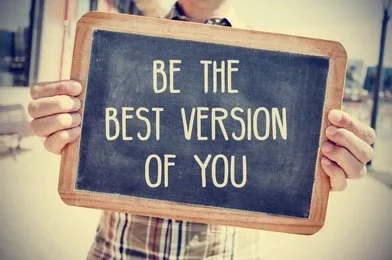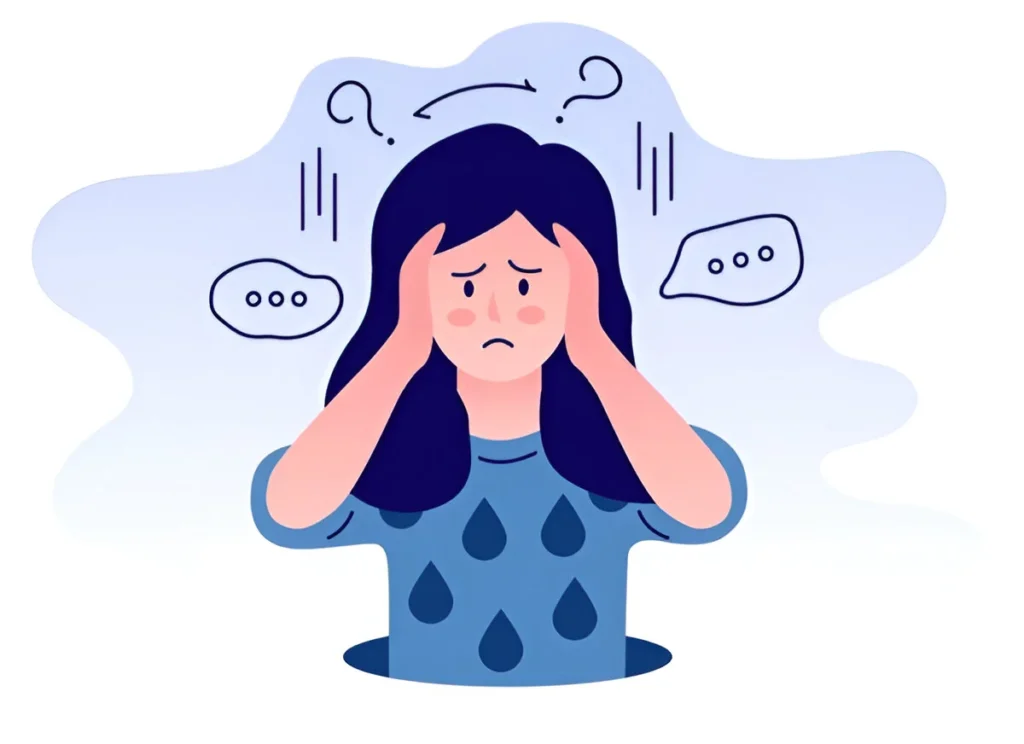-
129, Block-A Bangur Avenue, Mousumi Appartment, Kolkata 700055
129, Block-A Bangur Avenue, Mousumi Appartment, Kolkata 700055

Sleep quality and emotional well being are closely connected, with poor rest impacting mood, mental health, and resilience, as explained by a reputed psychological counselor. In today’s fast-paced, hyperconnected world, sleep often becomes the first sacrifice when life gets busy. But research consistently shows that our emotional health is intricately tied to how well we sleep. Restful, restorative sleep doesn’t just leave us feeling refreshed — it equips our brain and body to handle stress, regulate mood, and maintain emotional balance. The Science Behind Sleep and EmotionsHow Sleep Quality Shapes Emotional Well-Being1. Emotional Regulation2. Stress Hormone Balance3. Cognitive ClaritySigns Your Sleep May Be Impacting Your MoodHabits to Improve Sleep Quality and Emotional Well-BeingWhen to Seek Professional HelpFAQs on Sleep and Emotional Well-BeingBetter Sleep, Better Emotional Balance: Your Path to Well-Being Let’s explore how sleep quality directly influences emotional well-being and what you can do to improve both. The Science Behind Sleep and Emotions When you drift into deep sleep, your brain isn’t “shutting down.” Instead, it’s busy processing memories, regulating hormones, and repairing neural connections. Specific sleep stages, especially rapid eye movement (REM) sleep, play a critical role in processing emotional experiences. Poor sleep disrupts these processes, leading to: Lower emotional resilience – making it harder to handle everyday stress. Increased irritability and anxiety – as mood-regulating neurotransmitters are affected. Greater risk of depression – due to imbalanced brain chemistry over time. How Sleep Quality Shapes Emotional Well-Being 1. Emotional Regulation Quality sleep allows the prefrontal cortex — the rational thinking part of the brain — to keep the amygdala (the emotional center) in check. Without enough rest, emotional reactions become exaggerated. 2. Stress Hormone Balance Cortisol, the stress hormone, naturally declines at night. Inadequate or fragmented sleep keeps cortisol levels elevated, leaving you feeling tense and anxious. 3. Cognitive Clarity Good sleep improves decision-making, problem-solving, and impulse control — all of which are essential for maintaining healthy relationships and emotional stability. Signs Your Sleep May Be Impacting Your Mood Frequent mood swings Difficulty focusing or remembering things Heightened emotional sensitivity Persistent feelings of anxiety or sadness Increased conflicts with others If these symptoms persist, it’s worth considering that your emotional challenges could be rooted in poor sleep habits. Habits to Improve Sleep Quality and Emotional Well-Being Small, consistent lifestyle changes can transform both your sleep and your mood. Maintain a consistent sleep schedule – Go to bed and wake...

Recognise anxiety symptoms in women early to support emotional wellness. Insights from a reputed Psychological Counselor. Understanding Anxiety in Women: More Than Just Worry Anxiety is often misunderstood as just "overthinking" or "being too sensitive," especially in women. But it's much deeper—a complex emotional and physiological response to stress, uncertainty, or unresolved trauma. Recognising anxiety symptoms early can be the difference between temporary stress and long-term psychological distress. Understanding Anxiety in Women: More Than Just WorryWhy Early Detection MattersCommon Early Anxiety Symptoms in Women1. Persistent Overthinking or Catastrophizing2. Physical Discomfort Without Clear Cause3. Emotional Changes4. Avoidance Behaviour5. PerfectionismFactors That Influence Anxiety in WomenHow to Support Someone Who May Be AnxiousSmall Daily Practices That Can HelpWhen It’s Time to Seek Professional HelpFAQs on Anxiety in WomenQ1. Are anxiety symptoms different in men and women?Q2. Can anxiety in women be caused by hormonal changes?Q3. What is the first step after noticing early anxiety signs?Q4. Is anxiety treatable without medication?Q5. How long does it take to recover from anxiety?Early Recognition Empowers Change Mental health experts note that anxiety disorders disproportionately affect women due to a combination of biological, hormonal, psychological, and cultural factors. This is why early recognition and support are so crucial. Why Early Detection Matters Women often juggle multiple roles—caregivers, professionals, partners—which can blur or mask early signs of anxiety. Catching these signs early helps in: Preventing escalation into panic disorders or depression Reducing physical health complications linked to chronic anxiety Improving quality of life and emotional resilience Enhancing productivity, self-esteem, and interpersonal relationships Common Early Anxiety Symptoms in Women While anxiety symptoms can be different for everyone, certain early warning signs are more common in women. Here’s what to look for: 1. Persistent Overthinking or Catastrophizing Imagining worst-case scenarios repeatedly Difficulty shutting down racing thoughts at night Excessive planning or preparing for small situations 2. Physical Discomfort Without Clear Cause Frequent headaches, fatigue, muscle tension Increased heart rate or digestive issues Sleep disturbances or nightmares 3. Emotional Changes Heightened irritability or mood swings Feeling overwhelmed by minor setbacks Crying frequently or feeling emotionally numb 4. Avoidance Behaviour Avoiding social gatherings or interactions Postponing important tasks due to fear of failure Excessive use of screens, food, or substances to escape 5. Perfectionism Fear of making mistakes Overcommitting or people-pleasing tendencies Harsh self-criticism, even with small errors Factors That Influence Anxiety in Women Understanding what influences anxiety can help with early recognition....

Improve Your Self‑Confidence through expert counseling insights from a reputed psychological counselor. Learn practical ways to build inner strength. Self-confidence isn’t something we’re born with—it’s something we build.Yet, in today’s fast-paced, highly competitive world, many individuals find themselves struggling with self-doubt, negative self-talk, and impostor syndrome. Whether triggered by past experiences, social pressure, or ongoing anxiety, a lack of confidence can hinder your personal and professional growth. Why Do People Struggle With Self-Confidence?How Counseling Works to Improve Your Self‑ConfidenceUncovering Root Causes of Self-DoubtRewriting Negative Self-TalkSetting Realistic, Achievable GoalsImproving Emotional RegulationEnhancing Social and Communication SkillsAddressing Perfectionism and Imposter SyndromeSupporting Long-Term Self-GrowthSubtle Signs Counseling Is Helping You Improve Your Self‑ConfidenceHow to Choose the Right Counseling SupportFAQs About Counseling and ConfidenceFinal Thoughts: Reclaiming Confidence, One Step at a Time That’s where counseling plays a transformative role. Leveraging psychological insights, real-life strategies, and professional support, counseling helps you uncover the roots of low confidence and guides you to rebuild from the inside out. Why Do People Struggle With Self-Confidence? Confidence issues can arise at any point in life. Some of the common causes include: Negative early-life experiences Trauma or emotional abuse Comparison on social media Chronic anxiety or depression Perfectionism or fear of failure Poor communication skills These issues not only impact self-perception but can also affect relationships, career decisions, and mental health. The good news? These patterns are changeable—and therapy provides a safe space to begin. How Counseling Works to Improve Your Self‑Confidence Working with a qualified counselor creates a confidential and judgment-free environment where you can begin to examine and reframe your inner narrative. Here are some powerful ways in which counseling can help: Uncovering Root Causes of Self-Doubt Counseling begins with understanding why you feel the way you do. A skilled professional helps identify core beliefs and past experiences that contribute to low self-esteem. Once these are uncovered, you can work on replacing them with more empowering thoughts. Rewriting Negative Self-Talk That voice in your head telling you “you’re not good enough” or “you’ll fail” often goes unchallenged.A counselor helps you: Recognize irrational or unkind self-talk Learn cognitive restructuring techniques Develop affirmations that feel authentic Build a kinder inner dialogue Setting Realistic, Achievable Goals Nothing boosts confidence like small wins. Counselors often work with clients to: Break down long-term goals into manageable steps Celebrate progress (not just perfection) Foster motivation through consistent tracking Avoid self-sabotage and fear-based decisions Improving Emotional Regulation...

Break negative thought patterns effectively by understanding their roots and using proven psychological strategies. Learn expert tips from a reputed counselor. Negative thinking can feel like a never-ending loop. It creeps into your mind during moments of vulnerability, magnifies fear and doubt, and sometimes convinces you that things will never get better. But here's the truth: you can break negative thought patterns with the right awareness, tools, and support. What Are Negative Thought Patterns?Why Breaking Negative Thought Patterns Is EssentialHow to Break Negative Thought Patterns Effectively1. Recognize and Label the Thought2. Challenge the Thought with Evidence3. Reframe the Thought Positively or Neutrally4. Use the ‘Name It to Tame It’ Technique5. Practice Mindfulness and Cognitive Defusion6. Build a Mental Tool Kit7. Create Space Between Trigger and Response8. Surround Yourself with Positive ReinforcementWhen Should You Seek Professional Help?Proven Therapy Techniques to Break Negative Thought LoopsFAQs on Breaking Negative Thought PatternsReclaim the Narrative of Your Mind Whether it's persistent self-criticism, catastrophic thinking, or feeling trapped in worst-case scenarios, learning how to shift these patterns can dramatically improve your emotional well-being. This guide aims to walk you through an evidence-based, psychologically sound approach to overcoming the mental loops that hold you back. What Are Negative Thought Patterns? Before learning how to break them, it’s essential to identify what they are. Negative thought patterns are automatic thoughts that usually stem from distorted perceptions or emotional experiences. These thoughts tend to be repetitive, critical, and irrational. Some common examples include: Black-and-white thinking (e.g., “I always fail.”) Overgeneralizing (e.g., “Nothing ever works out for me.”) Catastrophizing (e.g., “If this goes wrong, it’s the end.”) Mind-reading (e.g., “They must think I’m a failure.”) Personalization (e.g., “This must be my fault.”) These thoughts can occur subconsciously, and over time, they start influencing your self-esteem, decision-making, and even relationships. Why Breaking Negative Thought Patterns Is Essential Unchallenged negative thoughts don’t just affect mood—they impact your: Mental clarity Productivity Self-worth Relationships Long-term emotional health Understanding the mechanisms behind these thoughts is the first step in healing and growing beyond them. How to Break Negative Thought Patterns Effectively Below are expert-backed, human-centered strategies that genuinely help in rewiring the mind and reclaiming your peace. 1. Recognize and Label the Thought Awareness is your first line of defense. Before changing a thought, you must notice it. Pause when you feel emotionally overwhelmed. Ask yourself: What am I thinking right now? Label the thought:...

Childhood trauma can affect your adult life deeply. Learn how therapy helps heal pain with guidance from a reputable counselor. Our childhood experiences play a major role in shaping who we are as adults. While positive memories can bring comfort, unresolved pain from traumatic events often lingers for years, influencing emotions, relationships, and overall well-being. Why Healing Childhood Trauma MattersUnderstanding Childhood TraumaHow Therapy Can Help Heal Childhood TraumaCreating a Safe Space for ExpressionIdentifying and Breaking Negative PatternsReframing Traumatic MemoriesStrengthening Emotional ResilienceTypes of Therapy Used to Address Childhood TraumaBenefits of Seeking Professional HelpSigns You May Benefit From Therapy for Childhood TraumaFAQs About Therapy for Childhood TraumaHealing Is Possible With Expert Guidance and Care Healing from childhood trauma is a journey—and therapy is one of the most effective tools to guide you through it. Why Healing Childhood Trauma Matters Unresolved trauma from early years doesn’t just stay in the past. It often shows up in adulthood as: Struggles with trust and relationships Emotional outbursts or emotional numbness Chronic anxiety, depression, or mood swings Physical symptoms like headaches, fatigue, or insomnia Patterns of self-sabotage or low self-worth Recognizing and addressing these patterns is the first step towards breaking free from their hold. Understanding Childhood Trauma Childhood trauma isn’t limited to extreme events. It can stem from experiences like: Loss of a parent or caregiver Emotional neglect or lack of affection Bullying or social rejection Physical, emotional, or sexual abuse Witnessing domestic violence Even seemingly small events can leave deep marks when they occur during the formative years. How Therapy Can Help Heal Childhood Trauma Healing is possible, and therapy provides a safe, structured environment to work through the pain. Here’s how: Creating a Safe Space for Expression A trained therapist helps you explore difficult emotions without fear of judgment. Talking about painful memories allows you to process them instead of burying them. Identifying and Breaking Negative Patterns Therapists work with you to uncover how past trauma influences current behavior. You’ll learn healthier coping mechanisms to replace self-destructive patterns. Reframing Traumatic Memories Therapy doesn’t erase memories but helps change the way they affect you. Techniques like Cognitive Behavioral Therapy (CBT) and EMDR (Eye Movement Desensitization and Reprocessing) can reduce the emotional charge tied to traumatic events. Strengthening Emotional Resilience Building self-awareness and emotional regulation skills empowers you to face triggers calmly. Over time, you develop the ability to nurture yourself in ways that may...

Learn how to overcome social anxiety with confidence using proven techniques. Insights from a reputed counselor. Understanding Social AnxietyWhat is Social Anxiety and How Does It Affect Daily Life?Steps That Help Overcome Social Anxiety1. Recognize and Challenge Negative Thoughts2. Practice Gradual Exposure3. Learn Relaxation Techniques4. Build Social Skills Gradually5. Seek Professional GuidanceBenefits of Overcoming Social AnxietyCommon Myths About Social AnxietyFAQs About Social AnxietyYou Can Build Confidence Step by Step Understanding Social Anxiety Social anxiety isn’t just about feeling shy. It’s a persistent fear of being judged, embarrassed, or rejected in social settings. For some, it might mean avoiding parties or public speaking; for others, even casual conversations feel overwhelming. The good news is that social anxiety can be managed—and even overcome—with the right steps. Backed by psychology and counseling techniques, this guide offers actionable advice to help you build confidence and reclaim your social life. What is Social Anxiety and How Does It Affect Daily Life? Social anxiety disorder (SAD) is one of the most common mental health challenges worldwide. It can manifest as: Excessive self-consciousness in everyday interactions Physical symptoms like sweating, trembling, or rapid heartbeat Avoidance behavior that limits career and personal growth Recognizing these signs is the first step toward change. Steps That Help Overcome Social Anxiety Experts suggest a combination of psychological strategies, lifestyle adjustments, and gradual exposure to social situations to address social anxiety. Here’s how: 1. Recognize and Challenge Negative Thoughts Start by identifying automatic thoughts that feed your anxiety, like “I’ll make a fool of myself.” Replace them with rational alternatives such as, “People are not as critical as I imagine.” Keep a journal to track these patterns. 2. Practice Gradual Exposure Make a list of anxiety-provoking situations, ranking them from least to most intimidating. Start with manageable interactions, like greeting a neighbor, before tackling larger gatherings. Repeated exposure reduces fear over time. 3. Learn Relaxation Techniques Breathing exercises and mindfulness can calm your nervous system. Try the 4-7-8 breathing technique before entering social settings. Progressive muscle relaxation also helps release tension. 4. Build Social Skills Gradually Role-play conversations with a trusted friend or counselor. Practice maintaining eye contact and using open body language. Focus on listening actively instead of worrying about what to say next. 5. Seek Professional Guidance Working with an experienced counselor provides tools tailored to your needs. A professional counselor can help you: Understand the root causes of social...